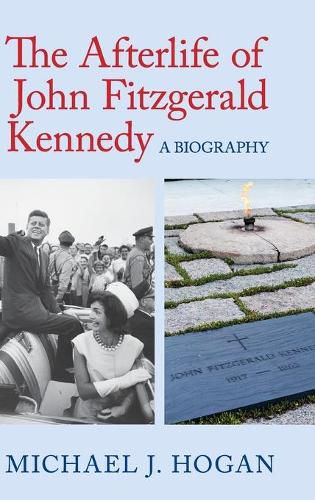Readings Newsletter
Become a Readings Member to make your shopping experience even easier.
Sign in or sign up for free!
You’re not far away from qualifying for FREE standard shipping within Australia
You’ve qualified for FREE standard shipping within Australia
The cart is loading…






In his new book, Michael J. Hogan, a leading historian of the American presidency, offers a new perspective on John Fitzgerald Kennedy, as seen not from his life and times but from his afterlife in American memory. The Afterlife of John Fitzgerald Kennedy considers how Kennedy constructed a popular image of himself, in effect, a brand, as he played the part of president on the White House stage. The cultural trauma brought on by his assassination further burnished that image and began the process of transporting Kennedy from history to memory. Hogan shows how Jacqueline Kennedy, as the chief guardian of her husband’s memory, devoted herself to embedding the image of the slain president in the collective memory of the nation, evident in the many physical and literary monuments dedicated to his memory. Regardless of critics, most Americans continue to see Kennedy as his wife wanted him remembered: the charming war hero, the loving husband and father, and the peacemaker and progressive leader who inspired confidence and hope in the American people.
$9.00 standard shipping within Australia
FREE standard shipping within Australia for orders over $100.00
Express & International shipping calculated at checkout
In his new book, Michael J. Hogan, a leading historian of the American presidency, offers a new perspective on John Fitzgerald Kennedy, as seen not from his life and times but from his afterlife in American memory. The Afterlife of John Fitzgerald Kennedy considers how Kennedy constructed a popular image of himself, in effect, a brand, as he played the part of president on the White House stage. The cultural trauma brought on by his assassination further burnished that image and began the process of transporting Kennedy from history to memory. Hogan shows how Jacqueline Kennedy, as the chief guardian of her husband’s memory, devoted herself to embedding the image of the slain president in the collective memory of the nation, evident in the many physical and literary monuments dedicated to his memory. Regardless of critics, most Americans continue to see Kennedy as his wife wanted him remembered: the charming war hero, the loving husband and father, and the peacemaker and progressive leader who inspired confidence and hope in the American people.